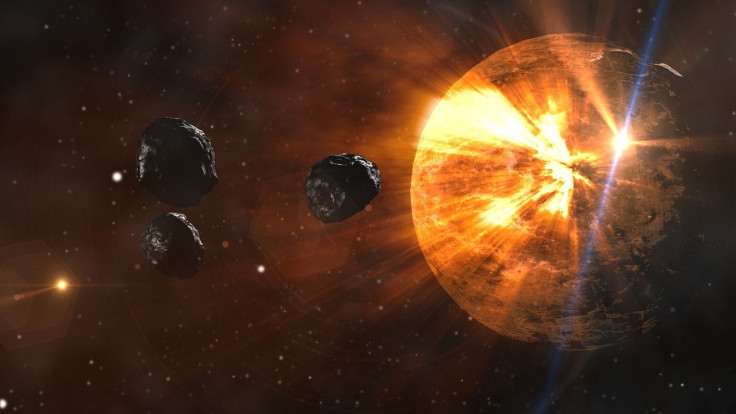Is A Panic Or Anxiety Attack Physical Or Mental? 10 Symptoms To Recognize

During a panic attack, it can seem like the world is ending, or you may feel like you're dying because the physical symptoms are so intense. But unlike a heart attack, which people can often confuse with a panic attack, the symptoms have a mental basis.
“A panic attack is a sudden episode of intense fear that triggers severe physical reactions when there is no real danger or apparent cause,” the Mayo Clinic says. “When panic attacks occur, you might think you’re losing control. … Although panic attacks themselves aren't life-threatening, they can be frightening and significantly affect your quality of life.”
Read: Signs You Have Social Anxiety
After the extreme feelings of fear, anxiety or doom set in, a panic attack launches into physical symptoms like palpitations or a rapid heartbeat, sweating and chills, shaking, shortness of breath, numbness and tingling, chest pain, nausea and dizziness or lightheadedness, the Anxiety and Depression Association of America lists. Someone experiencing a panic attack, on top of those numerous feelings, may have a feeling of detachment from their bodies or their situation. “Since many of the symptoms of panic disorder mimic those of heart disease, thyroid problems, breathing disorders and other illnesses, people with panic disorder often make many visits to emergency rooms or doctors’ offices, convinced they have a life-threatening issue.”
The symptoms can last for at least several minutes, the U.S. National Institutes of Health say. And the effects don’t stop once the attack is over: “Panic attacks can occur at any time, and many people with panic disorder worry about and dread the possibility of having another attack.”
That itself can cause stress and affect your life. According to the Mayo Clinic, “You may fear having a panic attack so much that you avoid situations where they may occur.”
Calm Clinic refers to this feeling as part of the “slow decline” when it is immediately following a panic attack. The physical symptoms subside — “on average, it takes about 30 minutes or so for someone to recover from a panic attack, although they may feel tired and drained for hours” — but a confused mental state, a racing heart and trouble concentrating could stick around for a while. The uneasiness can also linger, carrying through to later days: “Some experience depression as a result of their panic attack, and others focus on their physical symptoms so much that they feel like another attack is coming for days.”
See also:



























